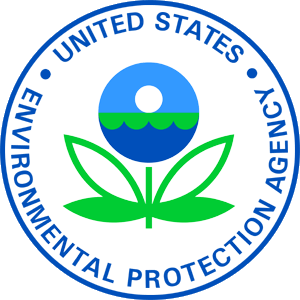EPA Launches New Studies and Data Collection Efforts to Better Protect Communities from PFAS
WASHINGTON – Today, December 16, the U.S. Environmental Protection Agency published for public comment its plan for studying and developing technology-based PFAS limits on industrial wastewater discharges. The plan is a key action under the agency’s PFAS Strategic Roadmap as it considers rulemaking efforts to protect communities from forever chemicals in local waterways and supports the Biden Cancer Moonshot’s efforts to reduce Americans’ exposure to cancer-causing chemicals.
Preliminary Effluent Guidelines Program Plan 16 (Preliminary Plan 16) announces the agency’s intent to initiate detailed studies of wastewater pollution discharges and their treatment potential for several industrial categories.
EPA has determined that it needs to collect additional data and information from facilities in the Battery Manufacturing Category, the Centralized Waste Treatment Category, the Oil and Gas Extraction Category, as well as from PFAS processors (industrial facilities engaged in processing PFAS into commercial products). The goal of these studies is to enable the agency to make informed, data-driven decisions on the need for new rulemakings to establish revised effluent limitations guidelines. Any future rulemakings developed as a result of these studies would be based on the best available science and designed to stop PFAS contamination at the source, safeguarding community and environmental health.
With the announcement of this preliminary plan in the Federal Register, EPA is opening a 30-day public comment period. To submit a written comment, visit EPA’s Preliminary Effluent Guidelines Program Plan webpage for more information.
Background
Effluent limitations guidelines (ELGs) are national, technology-based regulations developed to control industrial wastewater discharges to surface waters and into publicly owned treatment works. ELGs are intended to represent the greatest pollutant reductions through technology that are economically achievable for an industry. EPA prepares ELG Program Plans after public review and comment on a preliminary plan, pursuant to Clean Water Act Section 304(m).
NOTE: This press release was submitted to Urban Milwaukee and was not written by an Urban Milwaukee writer. While it is believed to be reliable, Urban Milwaukee does not guarantee its accuracy or completeness.
More about the PFAS Problem
- PFAS Levels in Great Lakes Fish Are Dropping - Danielle Kaeding - Feb 6th, 2026
- Gov. Evers and GOP Lawmakers Near a Deal on PFAS Pollution - Danielle Kaeding - Jan 22nd, 2026
- Gov. Evers Optimistic About Reaching Final Deal With Republican Lawmakers to Secure Release of $125 Million in Long-Awaited Pfas Investments - Gov. Tony Evers - Jan 21st, 2026
- Bipartisan Push to Tell Counties Faster When Water Tests Fail - Henry Redman - Dec 19th, 2025
- MKE County: County Seeks to Sue PFAS Producers, Oil Companies - Graham Kilmer - Dec 10th, 2025
- Wisconsin Reviewing EPA-Approved Pesticides For PFAS - Danielle Kaeding - Dec 9th, 2025
- State Nears Settlement with Johnson Controls/Tyco Over PFAS Spills - Danielle Kaeding - Dec 4th, 2025
- Senate Bill Promotes Soybean-Based Firefighting Foam to Replace PFAS - Danielle Kaeding - Dec 2nd, 2025
- Test Results Show High PFAS Levels in Wisconsin’s Landfill Runoff - Danielle Kaeding - Dec 2nd, 2025
- Wisconsin Communities Get $282 Million for Drinking Water Projects - Danielle Kaeding - Nov 19th, 2025
Read more about PFAS Problem here
Recent Press Releases by U.S. Environmental Protection Agency
EPA Announces $3 Billion in New Funding for States to Reduce Lead in Drinking Water
Nov 25th, 2025 by U.S. Environmental Protection AgencyAdditionally, $1.1 Billion of Unused Funding Redistributed for States
EPA Releases Draft Health-Based Recommendations for PFAS Levels in Bodies of Water
Dec 19th, 2024 by U.S. Environmental Protection AgencyCriteria can be used to inform water quality standards to protect people from exposure to PFAS






















